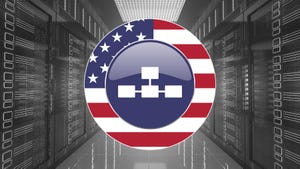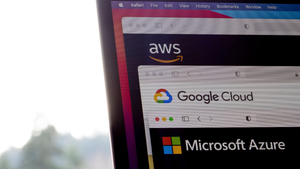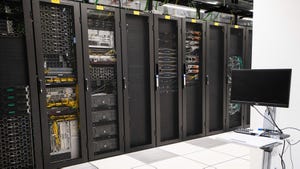
Insight and analysis on the data center space from industry thought leaders.
Consumer Regulated Electricity: The Path to Faster, Reliable Power Solutions?Consumer Regulated Electricity: The Path to Faster, Reliable Power Solutions?
There’s a growing understanding that we’re running out of electricity in the US. How can that be? More importantly, what can we do to fix it, asks Glen Lyons.
July 2, 2024

The electricity sector was once the “data center industry” of its day: vibrant, dynamic, and the envy of older industries. Unfortunately, electricity became trapped in what is now a century-old paradigm. The sector became heavily regulated, brought about by state-by-state political bargains which granted legally protected monopolies to favored companies in return for regulation.
Contrary to the mythology of the electricity industry that you may hear, there is no immutable law of natural monopoly that necessitates regulation. To make the situation more complicated, while electricity regulation began at the state level by granting monopoly utilities, eventually it grew to where we have a federal overlay as well.
Regulators are risk averse, and the sector’s big players (i.e., regulated utilities) are the grand masters of the rules. Additionally, the regulatory processes are designed to allow all manner of interest groups to participate. That means that the interest groups can slow progress even further or twist it in their preferred direction.
Regulation has sadly resulted in a sector that is slower, less responsive to consumers, and less innovative than during its first few decades when giants like Edison and Tesla battled over the choice of direct current vs. alternating current.
Today, data center growth is off the charts. Simultaneously, the grid is undergoing rapid decarbonization, and decarbonization in other parts of the economy is also increasing electricity demand. These developments are at odds with each other, leading to growing concerns over reliability and cost. So great are the concerns that they’re no longer just on the radar of the regulators. Legislators are seeing them, too, and are asserting their authority, from considering bans on new data centers to the imposition of new cost burdens on them.
The simple truth is that our current electricity sector cannot respond to these developments quickly. Regulation is hindering the speed and innovation that the market demands. We must break the paradigm. We must allow for a new type of electricity arrangement, one that operates independently of the regulators and, hence, independently of the regulated grid. This would enable entrepreneurs to develop new energy supplies faster while reducing the growing stress on the regulated grid.
Enter Consumer Regulated Electricity (CRE)
Regulation was intended to protect consumers against state-sanctioned monopolies by simulating the effects of competition. Regulation tries to do this by “ensuring” that the commercial aspects of electricity (rates, service quality, etc.) are “just and reasonable”. But large businesses don’t need to be protected like this. What if we simply allow large, sophisticated buyers like data center companies to enter unregulated electricity utility arrangements with the supplier(s) of their choice? Why do we need a regulator to protect large businesses from their decisions, provided their decisions don’t impact the existing regulated grid?
New, unregulated suppliers operating outside of the regulated grid will be able to bring back the speed and innovation that were lost a century ago. CRE utilities could supply one large load or bundle several together, regulated by the consumers (their customers), contractual arrangements, and the ever-present threat of competition.
Data centers would benefit from more than speed and innovation. They would gain control over their electricity supply. Today their supply is controlled by some hodgepodge of the utility, state regulator, state policy, federal regulator (Federal Energy Regulatory Commission), federal policy, and often, federally regulated Regional Transmission Organization (RTO) or Independent System Operator (ISO). There can be no control nor certainty in such a messy situation.
The Roadmap to CRE
Establishing CRE requires new state policy that allows CRE entrepreneurs to build unregulated utilities and operate them without the oversight of the state utility regulator.
States have legislation that enables their utility regulator. To then create CRE states need to amend that enabling legislation by defining CRE and exempting it from the regulation. Once that’s done then data center companies are free to negotiate agreements with their preferred CRE supplier(s).
The benefits of CRE to states are significant as well. First, most states don’t want to turn away new business and CRE would allow data center projects to move forward that would otherwise be lost. Also, by giving new data centers a way off the regulated grid, the stress of rapid growth on the existing grid would be lessened, allowing the regulators to focus on the existing grid issues.
Lastly, states that are early adopters could use CRE as a zero-cost economic development tool because data center companies would be attracted to the speed and control offered by CRE.
State enactment of CRE eliminates the state regulatory layer. What about the federal layer? Provided that the CRE utility doesn’t run transmission lines that cross state borders, the arrangement is limited to state jurisdiction. Imagine that: two layers of regulatory battles and delays gone via CRE. Data center management would be free to focus on the development of their business rather than navigating the slow waters of electricity regulation.
Glen Lyons is the founder and chief advocate at Advocates for Consumer Regulated Electricity.
About the Author
You May Also Like









